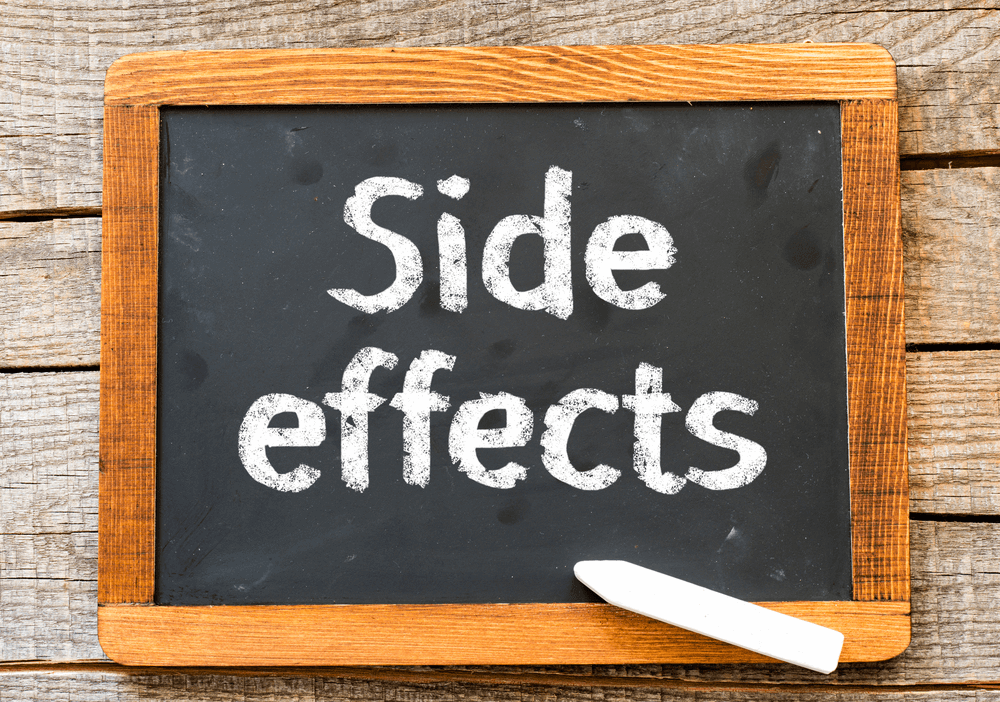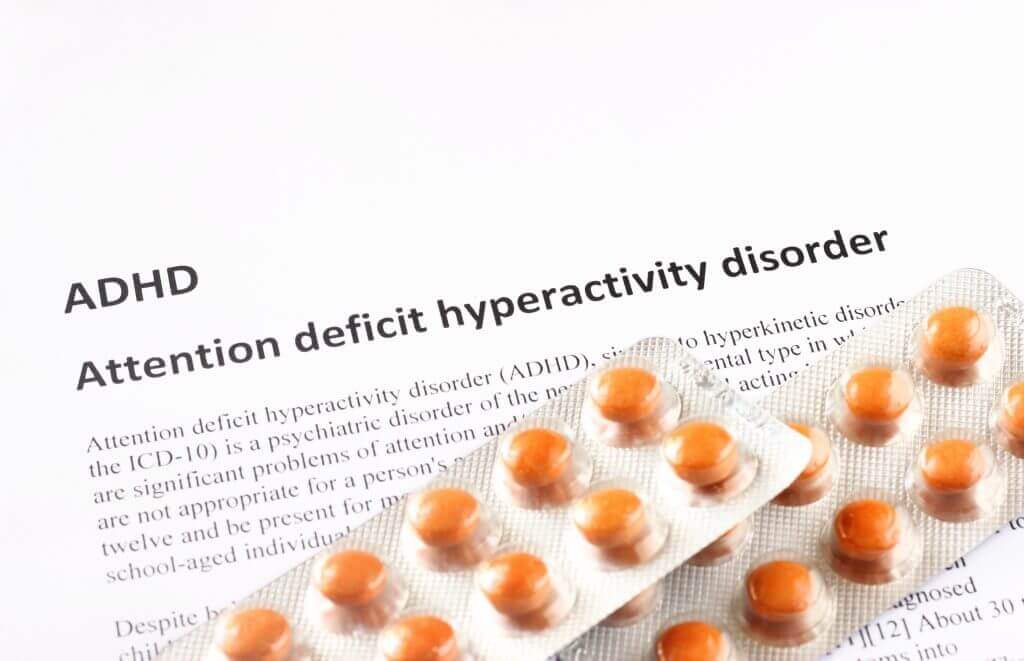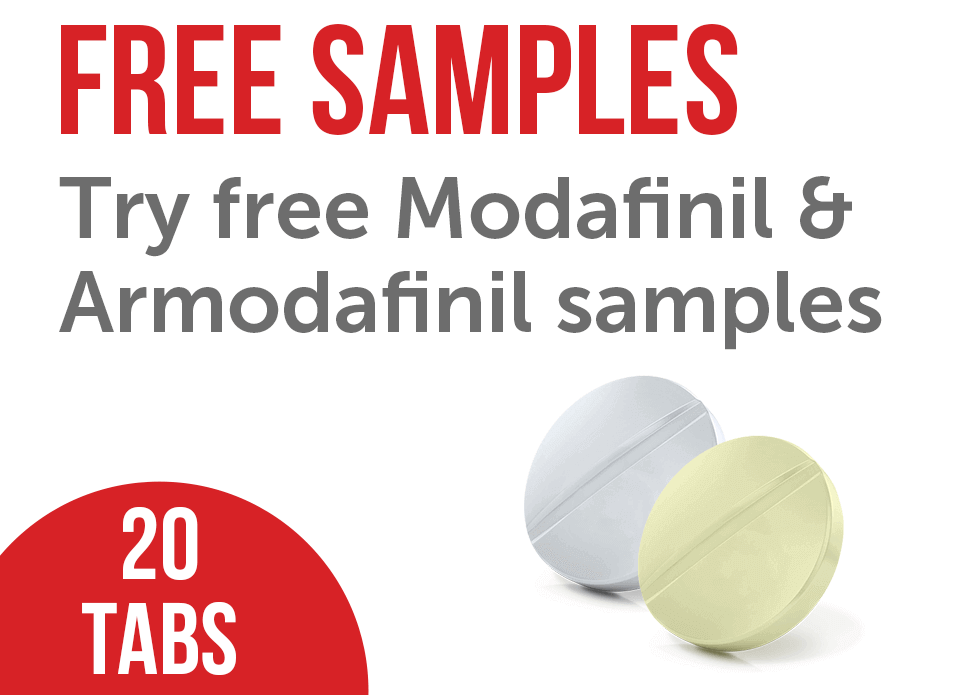If you’re dealing with ADHD or just curious about common treatments, you’ve likely heard of Concerta and Adderall. These two stimulant drugs help many people improve focus, manage symptoms, and ultimately boost productivity in daily tasks. This article provides a detailed comparison of Concerta vs. Adderall.
It also explains what each drug is, how they work, their key differences, side effects, uses, and which option might be better for specific needs like ADHD treatment, weight loss, or studying.
What Is Concerta?
Concerta is a prescription stimulant medication primarily used to treat attention-deficit/hyperactivity disorder (ADHD). It contains methylphenidate hydrochloride as its active ingredient, an agent that belongs to the same family of drugs as Ritalin. Methylphenidate has been around for decades and is trusted by doctors around the world for managing hyperactivity and impulsiveness. But while Concerta uses the same active ingredient as Ritalin, it is formulated as an extended-release (ER or XR) tablet, designed to provide a smooth, gradual release of the drug throughout the day.
Concerta works by blocking the reuptake of dopamine and norepinephrine in the brain. This leads to an increase in the levels of these neurotransmitters, which, in turn, helps improve attention span, focus, and impulse control in individuals with ADHD [1].
The major difference between Concerta and other methylphenidate medications is its OROS (Osmotic-Controlled Release Oral Delivery System). This unique delivery system allows the medication to be released slowly over 10-12 hours, which makes it effective for all-day symptom control with just one morning dose [2]. This is why many patients and doctors prefer Concerta for children and adults who need sustained symptom management during school or work hours.
Concerta is available in multiple dosage strengths, typically ranging from 18 mg to 72 mg per tablet. Doctors typically recommend or adjust dosages for patients based on factors such as age, weight, and response to treatment. While this medication has been around for years and has proven to be both relatively safer and more effective, it remains important to consult a doctor or professional healthcare provider before starting treatment with it.
What Is Adderall?
Adderall is a popular stimulant medication that doctors commonly prescribe to help patients manage the symptoms of ADHD and narcolepsy. Unlike Concerta, Adderall contains a combination of amphetamine salts, specifically amphetamine aspartate, amphetamine sulfate, dextroamphetamine saccharate, and dextroamphetamine sulfate. This combination gives Adderall a stronger, faster onset of action compared to other similar medications.
This stimulant medication works by increasing the levels of dopamine and norepinephrine in the brain, enhancing focus and attention, and reducing impulsivity. This helps sharpen mental clarity, curb hyperactivity, and speed reaction, making it a go-to for ADHD treatment [3].
Adderall comes in two formulations: Adderall Immediate-Release (IR) and Adderall Extended-Release (XR). The IR version typically kicks in quickly but lasts only about 4-6 hours, while the XR version is designed to release gradually and lasts around 10-12 hours, similar to Concerta’s all-day coverage.
It’s worth noting that while both medications are stimulants, their effect may vary from user to user. This is because, unlike Concerta, Adderall’s active ingredients are amphetamine-based. Some users find that Adderall gives a more pronounced “kick” or energy boost initially, whereas Concerta tends to feel smoother and subtler.
Adderall is available in various dosage strengths, ranging from 5 mg to 30 mg per capsule (XR). Doctors typically recommend a higher or lower dose based on body weight, specific user needs, and how they respond to the medication.
Compare Concerta and Adderall
Concerta vs Adderall: While both are stimulant medications prescribed to manage ADHD, they have different mechanisms of action, modes of release, and ingredients, as mentioned earlier.
Concerta contains methylphenidate, while Adderall is made of amphetamine salts (amphetamine and dextroamphetamine). Though both drugs work to increase dopamine and norepinephrine levels, their mechanism of action are not the same. Methylphenidate blocks the reuptake of these neurotransmitters, while amphetamines stimulate their release and also block reuptake. This difference in how they act on the brain’s chemistry contributes to their varying speed of onset of action and overall effects.
In terms of strength, Adderall tends to have a quicker and more noticeable onset of effects. On the other hand, Concerta’s effects kick in more gradually and tend to be smoother. This gradual release helps maintain a consistent level of the medication in the bloodstream, greatly reducing peaks and sudden energy crashes that sometimes happen with faster-acting stimulants.
Here’s a simplified table comparing both medications [4][5]:
| Feature | Adderall | Concerta |
| active ingredient | mixed amphetamine salts (amphetamine and dextroamphetamine) | methylphenidate |
| forms available | immediate-release (IR) & extended-release (XR) | extended-release (XR) |
| onset of action | faster within 30 minutes | gradual (within 1 hour) |
| available in generic form? | yes | yes |
| approved for | ADHD (ages 3+), narcolepsy | ADHD (ages 6+) |
| controlled substance schedule | schedule II | schedule II |
| abuse potential | high | moderate |
| what is the typical length of treatment? | long-term | long-term |
In terms of price, the 20 mg strength of Adderall often costs less, sometimes around $285 (without insurance) for a month’s supply. On the other hand, a month’s supply of Concerta often hovers around $545 or more (without insurance), depending on location [6][7].
Both medications carry risks of addiction, but Concerta’s tamper-resistant shell might make it less addictive for those tempted to misuse it, as it’s harder to crush or snort. It’s advisable to first consult a doctor before using Adderall, Concerta, or any other medication.
Concerta vs. Adderall: Difference Between…
The major difference between these meds shows up in how they’re used. Here’s a breakdown of the major points to consider [1][3]:
Dosages
As mentioned earlier, these Concerta and Adderall have different dosing strengths. Generally, 10 mg of Adderall is considered roughly equal to 20 mg of Concerta, though the exact conversion may vary depending on individual response.
Concerta is available in 18 mg, 27 mg, 36 mg, and 54 mg XR tablets designed for once-daily dosing. Adderall IR comes in 5 mg to 30 mg tablets, often taken 1-3 times a day, while Adderall XR capsules are available in 5 mg to 30 mg, taken once daily.
People switching between the two often wonder how many mg of Concerta would match their Adderall dosage. There’s no direct conversion formula, so doctors usually adjust based on how the patient responds to the medication. If you’re thinking about switching from one to the other, consult your doctor for assistance.
Side Effects and Safety
Concerta and Adderall have similar side effects, as they’re both stimulants. The most commonly reported ones include:
- insomnia;
- loss of appetite;
- palpitations;
- dry mouth;
- nausea;
- headaches.
However, Adderall is often reported to pose a higher risk of causing jitters and mood swings due to its stronger stimulant effects. On the other hand, due to Concerta’s XR mechanism, which provides a smoother effect, it poses minimal risk of negative after-effects like sudden energy spikes and crashes. This is why some people find Concerta less addictive or easier to tolerate in the long term.
Both medications are classified as Schedule II controlled substances, meaning they have the potential for addiction if misused. However, when used exactly as prescribed, such risks are greatly reduced.
Interaction with Meds, Food, and Alcohol
Both drugs can interact negatively with MAO inhibitors, antidepressants, and other stimulants. Combining them with alcohol can increase the risk of cardiovascular problems, mood changes, and impair judgment.
Adderall’s absorption may be slowed when taken with acidic foods or juices (like orange juice), while Concerta’s OROS delivery is less affected by food. Still, it’s generally recommended to take both meds on an empty stomach for optimal effect. It’s generally advisable to steer clear of alcohol when taking either Adderall or Concerta, as it can increase the risk of side effects like palpitations and dizziness. This is not to mention that the drugs can mask how drunk one feels, ultimately leading to overdrinking.
It’s advisable to always consult a healthcare provider or doctor about potential interactions, especially if you’re on other medications.
Comparing Concerta & Adderall for…
When it comes to actual use, these meds perform best in different scenarios. However, it’s worth noting that results may vary based on personal factors like body chemistry and the result looking to be achieved. Here’s how these stimulants perform in key areas:
ADHD Treatment
Both Concerta and Adderall are FDA-approved stimulant medications for ADHD treatment. While they’re both effective, the choice often depends on individual factors like age, lifestyle, and doctor recommendations.
In most cases, doctors typically like to start with Concerta for children or individuals prone to anxiety because of its smooth release system, which can reduce the risks of emotional highs and lows [8][9]. On the other hand, Adderall is sometimes favored in cases where stronger, more immediate symptom control is needed, especially for adults managing demanding tasks.
Adderall allows doctors and users to adjust doses (morning and afternoon) more easily when managing ADHD because it comes in both IR and XR versions. On the other hand, Concerta’s once-daily dosing makes it simpler to use but “not as favorable” in situations where symptoms flare up in the middle of the day.
Weight Loss
Though neither Concerta nor Adderall is officially approved for weight loss, both may cause appetite suppression as a side effect. As a result, many use them off-label to assist with weight control. Adderall, with its stronger stimulant profile, is often perceived as being more effective for short-term weight loss. However, doctors generally discourage using these medications for this purpose due to the risks of misuse and addiction. Concerta also suppresses appetite, but to a lesser degree, and its extended-release form reduces sudden appetite drops. Over time, the body may adjust, lessening this effect.
Overall, using these medications may not be a healthy approach to weight loss, as they can affect nutrition and lead to rebound weight gain if discontinued.
Increasing Focus for Studying
When it comes to increasing focus for studying, both drugs are widely used off-label by students and professionals. This is because of its ability to increase alertness, boost focus, and ultimately improve productivity.
Because Adderall is faster and stronger than Concerta at boosting concentration, people consider it a great option for intense, short-term study sessions. However, it’s worth noting that it comes with a higher risk of side effects like anxiety and restlessness [10].
Concerta, on the other hand, is preferred by those who need steady concentration over a long period, such as during all-day lectures or study marathons. Its longer duration and smoother delivery make it less likely to cause energy crashes. This makes it ideal for sustained focus without as many ups and downs.
While professionals advise against using these drugs off-label for studying, many still continue to use them despite the potential risks, perhaps due to positive reviews from other users. However, it’s important to keep in mind that, like any med, they can show up on a drug test.
Concerta vs Adderall: Which One Is Better for You?
The truth is, it boils down to your unique needs, lifestyle, and how your body responds to each. There’s no one-size-fits-all answer to which is better, as it varies person to person.
A doctor is in the best position to help you decide. They will consider factors like your ADHD symptoms, medical history, and even daily routine to guide the decision. For instance, if you need a steady, all-day focus with minimal ups and downs, Concerta might be recommended due to its slow-release design. This is especially the case for kids or adults who prefer a single daily dose. On the other hand, if you need flexibility or a quicker boost in concentration, Adderall might be a better pick because of its immediate-release option and XR versions.
Once you start treatment, the doctor will closely monitor how you respond. They may adjust the dose, switch the meds, or even try both to see which one provides the most benefits with the least side effects. Remember to always consult a medical professional before starting treatment with any medication.
References
- Concerta (methylphenidate): Side effects, dosage, and more. Written by Jennifer Mitri Williamson, PharmD. Medically reviewed by Heather Bruce, PharmD. Retrieved: August 4, 2025. Medicalnewstoday.com.
- How Long Does Concerta Last? Duration and Daily Management. Written by Amanda Stevens, B.S. Medically reviewed by Dr. Pamela Tambini. Retrieved: August 4, 2025. Southeastaddictiontn.com.
- Adderall. Retrieved: August 5, 2025. Wikipedia.org.
- Concerta® vs. Adderall®: Which is Better for Me? Retrieved: August 5, 2025. Clarityxdna.com.
- Concerta vs. Adderall: The Differences Explained. Written by Stephanie Watson. Medically reviewed by Smitha Bhandari, MD. Retrieved: August 5, 2025. Webmd.com.
- The Cost of Adderall: Street Value vs. Without Insurance. Written by Edmund Murphy. Medically reviewed by Morgan Blair. Retrieved: August 5, 2025. Recovered.org.
- How much is Concerta without insurance? Written by SingleCare Team. Medically reviewed by Anne Jacobson, MD, MPH. Retrieved: August 5, 2025. Singlecare.com.
- Adderall vs. Concerta for ADHD: Important Differences and Potential Risks. Retrieved: August 5, 2025. Goodrx.com.
- Concerta vs. Adderall: How Do They Compare? Written by Ayesha Gulzar, PharmD. Medically reviewed by Alex Yampolsky, Pharm D. Retrieved: August 4, 2025. Verywellhealth.com.
- Concerta vs. Adderall: Similarities and Differences Explained. By The Recovery Village. Retrieved: August 4, 2025. Therecoveryvillage.com.









